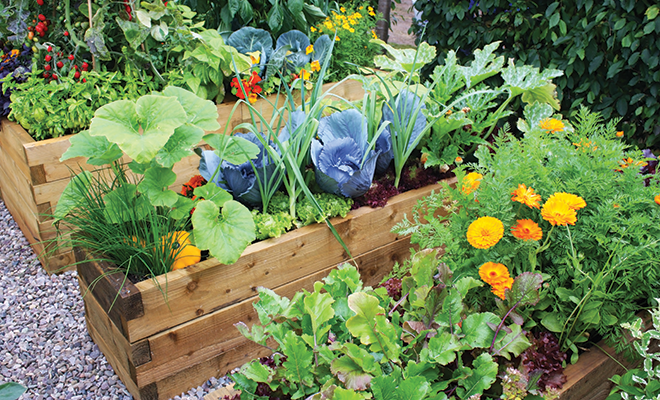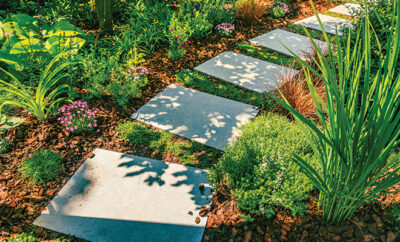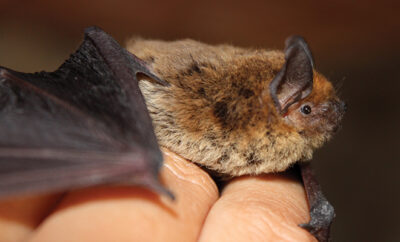
Garden Organically!
Do you love eating fruits, vegetables and herbs that you grow in your own garden? Do you enjoy gardening and maintaining a beautiful assortment of shrubs and flowers throughout the year?
Over the last few decades, the demand for organic food has grown and many of us are turning to our own yards in order to cultivate fresh and pesticide-free goods that we feel comfortable feeding our family. However, there’s still the plight of weeds and bugs that must be contended with; does that mean you’re stuck using a pesticide no matter what? Not at all. In fact, there are plenty of homemade solutions that are quite effective at keeping your garden thriving and producing while also keeping those pesky and unwanted guests from infiltrating your space.
While some people avoid pesticides out of personal choice, are they really that harmful to consume? It depends whom you ask. Though there have been quite a few changes to the pesticide industry as a whole, there are still a variety of negative effects that should be avoided.
Environmental
One of the main negative aspects of using chemical pesticides is that it’s harmful for the environment. While the chemicals are effective for killing weeds and keeping bugs off crops, pesticides don’t evaporate into thin air. Chemicals spread through the water system, soil and air, making exposure to chemicals guaranteed at some point.
Soil Quality
The use of chemicals and pesticides on crops over time can alter the health of the soil; this means that the food coming from the soil is also altered nutritionally. Over the decades, the nutritional value in produce has dramatically lowered, which correlates to the increased use of pesticides and soil depletion. Chemical residue can be left on the food; produce such as lettuce, potatoes and vegetables used for baby food are exposed.
Health Effects
The effect of pesticides on human health is also concerning. Studies show that pesticide exposure, through food or environmental conditions, is linked to a number of health risks, including reproductive issues, cancer and a multitude of diseases.
That’s not to say that news about pesticides has always been bad. In fact, early use of pesticides helped reduce the number of diseases spread by mosquitos and other insects, and it allowed farmers to grow crops to meet the high level of demand as the population grew. So how do you reap the benefits of pesticides without all the toxic ingredients? You use natural resources!
Natural and organic pest control offer a good deal of benefit without the harmful side effects. For example, it’s cheaper to use and, of course, it’s better for the plants in your garden as well as the surrounding environment. Natural gardening tips also ensure that your produce and shrubs grow in a healthy and thriving manner. Maintenance is one of the best ways to keep pests and weeds to a minimum. Here are some easy tips for managing a garden of any size.
Garden Maintenance
Clear out dead or dying plants When a plant begins to decay, it attracts pests and other garden nuisances. Each week, take an inventory of your garden and clear plants that are no longer thriving.
Natural Additive
Spray with seaweed! Seaweed isn’t just highly nutritional to eat; it’s also a wonderful option for using as a mulch, fertilizer or spray on a garden. This marine plant is high in many beneficial trace elements, including calcium and magnesium, which help promote healthy plant growth. Seaweed is also useful as a slug repellant!
Watering Pattern
Water early in the day. Wet foliage creates a breeding ground for mold and other fungi as well as insects. Watering early in the day allows the plants to dry off throughout the day, reducing the risk of long-term moisture.
Kitchen Remedies
Easily make your own pest control formulas using ingredients you likely already have in the kitchen. A plethora of organic recipes are available to choose from, depending on your garden issue. One simple formula for getting rid of bugs is mixing a cup of vegetable oil with one tablespoon of gentle dish soap to create a concentrate. When you’re ready to spray your plants, use two tablespoons of the mixture with a quart of water, shake it up in a spray bottle and apply to the plant surface.
White vinegar is another useful ingredient to use against bugs, weeds and moss. Just be sure to dilute each tablespoon of vinegar with a gallon of water, as the high acidity level could burn plants.
Staying on top of weeds and bugs ensures that you don’t need to use pest control often, but when you do, there are plenty of natural and toxin-free options to use! ■
Sources: nih.gov, treehugger.com, hgtv.com and scientificamerican.com.







